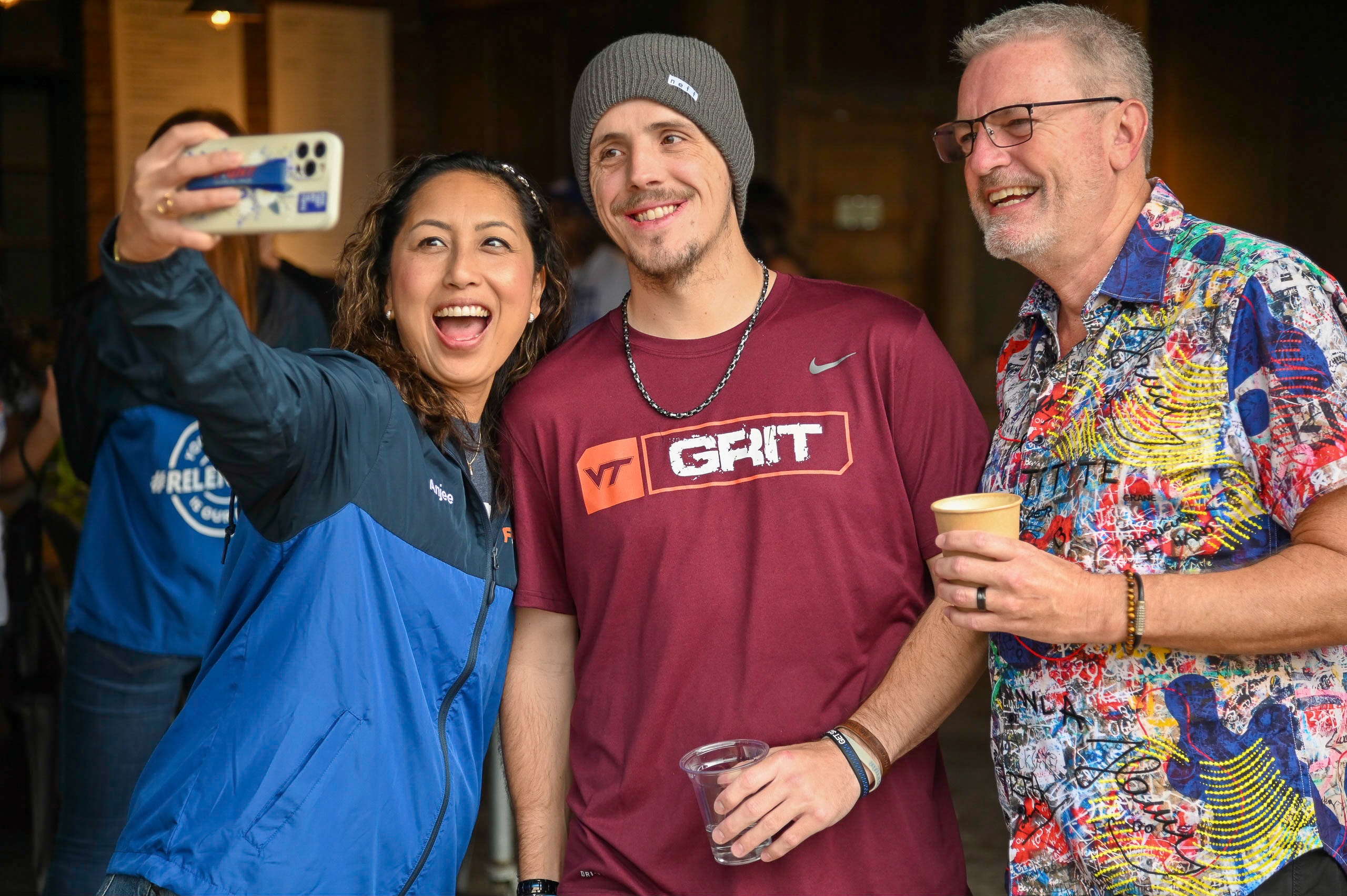This is a great first step. Even if your physician isn’t currently aware of any trials for which you are eligible, they can help you collect the information you’ll need to apply for trials, such as your biomarker status and therapies you’ve tried already. It’s always best practice to involve your healthcare team when thinking about enrolling in a trial.
Clinical Trials
Back to Education & Resources
Table of Contents
What are clinical trials?
Clinical trials are performed to test new medications, procedures, protocols, interventions, and devices to see if they are safe and effective. They are performed for many diseases within different groups of people (age, ethnicity, sex).
Clinical trials may also be performed with the goal of addressing side effects secondary to a primary illness, such as cachexia or skin toxicity, that may accompany cancer treatments. They may be performed to see if a new treatment option is safer or more effective than an existing option. Clinical trials also address quality of life and symptom management, genetics and personalized medicine, and survivorship and long-term outcomes.
Voluntary
At a minimum, participants receive all treatments they would receive if they were not participating in a clinical trial.
Not a last resort
New therapies
It is important to view clinical trials as a potential option at every stage of your treatment, as they may offer you access to treatments you might not otherwise be able to receive.
And, don’t forget: You can also enroll in clinical trials studying prevention and early detection techniques. Patients are needed to enroll in trials that are designed to stop or catch cancer when it’s most curable.
Clinical Trials Webinar Series
The Clinical Trials webinar series helps patients understand their options and stay informed as research and new studies continue to evolve. Stay up to date by signing up for our clinical trials newsletter below.
Your Inside Track to More Time, More Options Our new Clinical Trial Finder is coming soon — a tool to help you explore opportunities that could change the future of colorectal cancer care. While we put the finishing touches on it, we don’t want you to miss a thing. Sign up for More Time, More Options, our monthly, patient-centered newsletter created by Fight CRC staff and our Research Advocacy Training & Support (RATS) program. Each issue delivers: Clinical trial highlights you can actually understand Major research spotlights from around the globe Insights from advocates and experts who know the fight firsthand It’s your go-to guide for staying informed, empowered, and ready for what’s next. Join today and get the latest updates straight to your inbox.
"*" indicates required fields
Understanding HER2: What Patients Need to Know
This webinar brings together leading experts and advocates to discuss HER2-positive metastatic colorectal cancer (mCRC) and emerging clinical trial opportunities — including insights from the MOUNTAINEER study.
Sign Up for our Clinical Trials Newsletter
Our monthly, patient-centered newsletter is created by Fight CRC staff and our RATS (Research Advocacy Training and Support) team.
Each issue brings you:
- Clear, accessible clinical trial highlights
- Major research spotlights from around the world
- Insights from advocates and experts who know the fight firsthand
Stay informed, empowered, and ready for what’s next. Join today and get the latest updates straight to your inbox.
Your Inside Track to More Time, More Options Our new Clinical Trial Finder is coming soon — a tool to help you explore opportunities that could change the future of colorectal cancer care. While we put the finishing touches on it, we don’t want you to miss a thing. Sign up for More Time, More Options, our monthly, patient-centered newsletter created by Fight CRC staff and our Research Advocacy Training & Support (RATS) program. Each issue delivers: Clinical trial highlights you can actually understand Major research spotlights from around the globe Insights from advocates and experts who know the fight firsthand It’s your go-to guide for staying informed, empowered, and ready for what’s next. Join today and get the latest updates straight to your inbox.
"*" indicates required fields
Who are clinical trials for?
Clinical trials are for anyone who meets the eligibility criteria of the trial.
You don’t have to have stage IV cancer or exhaust all treatment options in order to participate in clinical trials. If you meet the specific eligibility criteria of a trial, and the trial is still recruiting, then that trial may be for you!
For patients interested in treatment trials, it is critically important to understand your diagnosis. Knowing the stage of your disease, your biomarkers, specific cancer type (colon vs. rectal, or left vs. right side), and previous therapies you’ve received are all crucial information to have when looking for a trial.
If you’re unsure of this information, have a conversation with your care team.
Looking for a doctor who performs clinical trials?
What do clinical trials do?
Clinical trials test the efficacy and safety of new drugs, drug combinations, non-drug treatments, surgical techniques, medical devices, and interventions like the impact of diet and exercise on the prevention of cancer.
Treatment Trials
In treatment trials, clinical trials are designed to test how well the study protocol works (their efficacy); how their efficacy compares to the current standard of care (the treatment you’re likely already getting); and their safety profile, which is essentially a drug’s likelihood of causing side effects at a given dose.
Phases
Clinical trials are all tested in a rigorous process that proceeds in phases, from preclinical studies to large trials in broad groups of patients. Clinical trials may test through four phases, but not all treatments and therapies advance through all phases, and not all treatments and therapies are approved after proceeding through trials.
In fact, only about 1 in 5 new drugs that enter clinical trials are eventually approved by the FDA.
On average, it takes about eight years for a new drug to get through clinical trials. Trials are conducted methodically, with the safety of participants being top priority.
How do I find a clinical trial?
There are a variety of ways to find trials that you are eligible for, and your search can be done independently or with the help of your healthcare team.
If you’re a colorectal cancer patient, Fight CRC strongly recommends that you discuss your desire to participate in a clinical trial with your care team. We also recommend that you discuss any potential trials you have found with your physician before applying/enrolling in them.
Clinical trials – how do I get involved?
In this webinar, Dr. Smitha Krishnamurthi joined Fight CRC to explain how to find a trial you may qualify for and what to expect if you choose to participate.
There are several ways to find a trial that you are eligible for:
Discussion with your healthcare team
ChatCRC
ChatCRC now lets you upload a photo or screenshot of your biomarker report and diagnosis information so it can help you search ClinicalTrials.gov and identify trial options that may match your needs.
*Your information stays yours. Fight CRC does not store or sell any data—ChatCRC is here solely to support patients.
I think I’ve found a trial I qualify for, what next?
There are several steps to take when you’re interested in enrolling in a clinical trial. After you’ve talked with your healthcare team and find agreement that the trial could be a good option for you, this is likely what comes next:
Collect your records
Most likely, and especially if the trial involves drug development, you’ll need to collect your medical records. The specifics of what you’ll need will be dictated by the trial protocol.
- Cancer specifics: If you’re enrolling in a clinical trial for patients, you’ll need to know the stage of your cancer, along with specifics relating to your tumor’s location (right side vs. left side) and type (colon vs. rectal).
- Current therapies: Know which therapies you are currently receiving, if applicable, and which therapies you have tried in the past. Eligibility for treatment trials requires you to have used specific treatments in the past, or alternatively, require that you have not used certain therapies previously.
- Biomarker status: Patients need to know as much information as possible about their unique biomarkers.
- Previous Imaging: You will need to collect any imaging (scans) that has been performed. You may need both the interpretation by a radiologist (commonly referred to as “the read”), and the actual imaging studies, normally provided on a CD or transferred electronically, if possible.
- Ask about costs: There may be costs associated with obtaining your medical records, and it may take some time to get everything you need, so be diligent. These are your records, and you have a right to them!
Contact the trial organizers
You can also reach out to the researchers conducting the trial directly. They should be able to help you understand whether you qualify, and they can assist you when it comes time to enroll in the trial.
Contact details and location information for trials are generally easily found in the trial listing, making it easy to reach out to the study’s organizers to ask questions or get enrollment information.
What does it cost to participate in a clinical trial?
The actual trial will most likely be free for you to participate in (as of 2014, the Affordable Care Act requires that most private insurance cover routine costs for approved clinical trials), but there may be other costs associated with participation that are not so obvious. Be sure to consider these potential hurdles when enrolling in a trial:
-
Travel costs: If you live in a large city with multiple academic institutions, there may be a local trial, and travel expenses will be minimal. However, if you live in a rural area, or if a trial is taking place at only a few sites that are not close to home, you may need to consider travel expenses when enrolling. Costs such as gas, airfare, parking, food, and hotels can add up quickly. The trial may or may not be able to assist with these expenses.
-
Time off work: If you’re employed, you may need to request time off to participate in a trial. Take into consideration the amount of time off you are allowed, and, if applicable, discuss the potential for remote work. The Family and Medical Leave Act may protect your job if you need to take extended time off, but it will not cover your lost wages. Plan accordingly. You may also consider applying for Social Security Disability Insurance if you have advanced disease.
-
Discuss financial needs: It may be worth discussing any financial concerns with the institution or group conducting your trial, and/or a social worker or nurse navigator. Some trials do offer patients financial assistance or stipends for participating, or they can connect you with third parties and resources that can help cover travel expenses or other associated costs.
What does participating in a clinical trial entail?
Each clinical trial is unique. The details of what you will be doing; which drugs or interventions you will receive; if/how often you are required to attend clinic; and many other factors will be unique to the trial you are participating in and are dictated by the protocol of the trial.
Treatment trials first steps
If you’re enrolled in a trial for drug development, generally, you will be required to spend time with the study team which can include:
- The investigators conducting the study
- The study coordinator
- Any staff who work at the study site, such as nurses and technicians.
You’ll be able to answer their questions and submit to any diagnostic testing required during the trial, such as lab work or imaging. Your general care will most likely be handled by the study team during the duration of the trial, but this may vary on a case-by-case basis.
Need help with medical terms related to colorectal cancer? Our glossary is here to guide you.
Terms to be familiar with
You may encounter some unfamiliar terms while searching for a clinical trial. Here are quick definitions:
Standard of care
Also called “best practice,” this is a leading treatment protocol used by medical professionals to treat a certain disease.
Protocol
A detailed plan that describes the steps of a clinical trial or treatment.
Informed consent
A patient is informed about the methods and risks of a procedure and agrees to receive treatment yet can withdrawal at any time.
Randomization
Trial participants are assigned to a specific arm of the study to balance differences in participants, such as age and sex.
Arm
A group of patients receiving a specific treatment; typically trials have at least two arms, sometimes more.
Clinical trials myths and misconceptions
Clinical trials are a last resort
You need to have exhausted standard of care to be admitted to a trial
You might receive a placebo during the trial
Think again! Placebos are not used in clinical trials where volunteers would be harmed if they do not receive real medical treatment for their condition, and if placebos are used in a trial, participants will be informed of their use.At a minimum, participants receive all treatments they would receive if they were not participating in a clinical trial.
If your treatment is working, you don’t qualify and/or need to think about enrolling in a trial
Are certain groups needed for clinical trials more than others?
For years, clinical trials were primarily run on white men only: Groups such as women and minorities were either not included and/or participants were harmed in the process. Fortunately, this has changed, and today, trials encourage and actively seek out the participation and safety of all eligible people.
Informed consent is essential to any participant, and trials are heavily overseen by ethics groups and review boards.
However, clinical trial enrollment in the United States is generally low, and enrollment statistics do not align with the demographics of the United States.
For instance, between 2015 and 2021, the Food and Drug Administration (FDA) approved 82 new therapies for cancer treatment. Nearly 90% of the clinical trials that supported the approval of these therapies lacked adequate representation of Black patients, and 73% lacked adequate representation of Hispanic/Latino patients.
Low diversity in clinical trials means that the participant population does not accurately reflect the real-world population of those with cancer that might need these new therapies.
Racial groups may respond differently to drugs and other therapies, so ensuring diversity within clinical trials ensures that new treatments work for everyone.
There is a role for people of all backgrounds in clinical trials, and the more diverse people that participate, the sooner there will be better screening resources and treatment options for all colorectal cancer patients.



